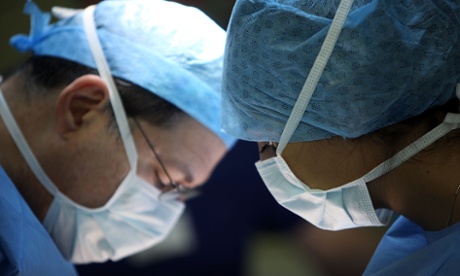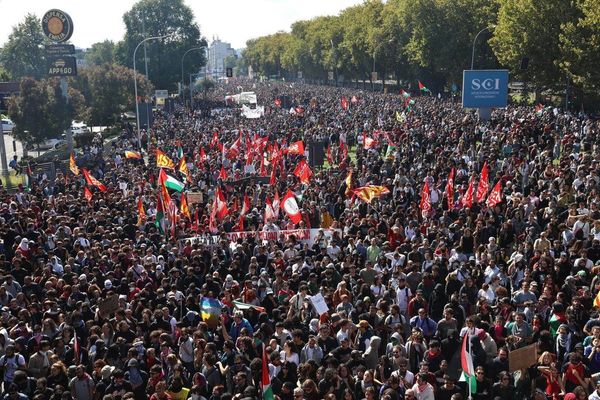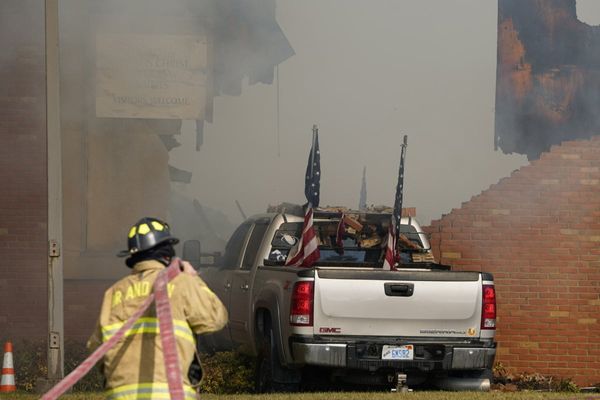
The NHS will have to ration care if the incoming government does not give it enough money to do its job properly, Dr Mark Porter has warned.
The head of the British Medical Association also contradicted the coalition’s claims that it has given the NHS in England real-terms annual increases in its funding every year since 2010.
Recent “penny-pinching, parsimonious” moves by some parts of the NHS to restrict cataract surgery and hip and knee replacements are a taste of how the service responds to a shortage of money, the British Medical Association boss said.
The NHS in England’s £20bn Nicholson Challenge over the last four years has been “painful and resulted in restrictions on care, of not only individual procedures but also patients in high-risk groups. We’ve seen people being refused care because they smoke or because they’re overweight or because they live in the wrong part of the country”, said Porter.
“We’ve seen the start of it [rationing] so far. We’ve seen limitations on services that are available and limitations on the patients it’s available for. We’ve seen postcode lotteries.”
Growing numbers of patients could be denied a widening list of types of care if the NHS cannot balance its books between now and 2020, when NHS England has forecast that it could face a £30bn black hole in its budget.
“It’s really quite unbelievable that we take people whose need is demonstrable, they come to the health service and we treat them in the most penny-pinching, parsimonious way that belies the entire reason the health service was set up in the first place – to remove the anxiety that illness will be unmanageable or too expensive or reduce you to poverty.
“We’re in serious danger of retrenching on that original offer made to people through the National Health Service”, added Porter.
The cost of medical developments such as improved heart surgery, growing population and increased demand for care meant that the tiny year-on-year rises ministers have delivered – the King’s Fund thinktank estimates the increases at 0.8% each year – have not kept pace with the service’s actual need, Porter added.
The NHS’s budget in the year that began on 1 April will be £116.4bn – £3.3bn more than the £113.1bn it was in 2014-15, partly thanks to a £1.95bn NHS funding boost in chancellor George Osborne’s autumn statement last November.
Accusing the coalition of having given the NHS “inadequate” funding, Porter said that was to blame for the fact that the service is likely to have ended 2014-15 about £1bn in the red – its first over-spend for nine years – and is facing a deficit of up to £2.5bn by the end of this year. A large majority of hospitals are in deficit.
“The government’s policies are demonstrably pushing NHS providers into a deficit situation for the first time in quite a long time”, the BMA leader added.
The £22bn of efficiency savings by the NHS by 2020 pledged NHS England chief executive Simon Stevens – the service’s share of plugging the £30bn gap – “simply can’t be found”, he said. Norman Lamb, the Liberal Democrat health minister, has already described the £22bn target as “an heroic assumption” by Stevens.
The Treasury will thus need to give the NHS more than the £8bn extra a year by 2020 Stevens has requested to meet the rest of the shortfall, Porter forecast.
He accused the main political parties of “playing games” with the NHS by each pledging different amounts of extra money for it in 2015-20. The answer to its fast-worsening financial situation is to start increasing again its share of GDP, which has been falling under the coalition. It was 6.5% of GDP in 2010 but has fallen since to 6.2%, according to the Nuffield Trust, a health thinktank.
“It says something shaming about the state of our politics” that the NHS’s share of GDP had been allowed to fall at a time of rising need, he added. He backed the Liberal Democrats’ idea of a post-election cross-party convention to establish how much money the NHS needed and how to find the resulting extra investment.
The Conservatives rejected Porter’s claim that the coalition had given the NHS too little money. “Both the IFS and the King’s Fund have separately acknowledged that this government has increased NHS funding over the course of this parliament. The additional £12.7bn this government has invested is paying for more doctors, more nurses and more operations”, said a party spokesman.







